During the eight-year Iran-Iraq war, from 1980 to 1988, thousands of Iranian Baha'is went to the frontlines alongside their compatriots. Dozens of them were killed, wounded or captured. The Islamic Republic is reluctant to name them alongside other victims of the conflict, who are officially termed “martyrs”.
A new series of IranWire articles is shedding light on the Baha’is who died as part of this conflict. If you know any Baha’is who were killed during the Iran-Iraq war, and have a first-hand account of their lives, please contact us.
***
“Farhad's commander said we should offer our condolences to his family for raising such a brave person. He saved our lives by risking his. Farhad could have surrendered like the guards, and survived, but he did not do so. He saved our lives by sacrificing his life.”
These are the words of one of the comrades of a martyr of the Iran-Iraq war, Farhad Zahedi, who gave his life for the protection of his homeland and people, but was not named as a “martyr" by the Foundation of Martyrs and Veterans’ Affairs because he was a Baha'i.
Farhad Zahedi Amrei was born to a Baha'i family on January 25, 1968, in the village of Ahmadabad in the rural Sari district. Farhad's grandparents, Mirza Habibullah and Mullah Ensieh Zahedi, who were originally Muslim, founded mosques and organized religious ceremonies in the village of Amreh, Sari, were beaten and persecuted by local fanatics after becoming Baha'is. They moved to the village of Ahmadabad in 1951.
Early Life and Schooling in Ahmadabad
The residents of Ahmadabad village were all Baha'is, and most of the villagers, including Farhad's father, Erfan Zahedi, worked in agriculture. Farhad received his primary education at the Feyz Roshankuh Public School in Ahmedabad. The school was founded by the Baha'is of Ahmedabad, and its pupils were taught by Mr. Safaei, a volunteer Baha'i teacher.
Feyz Roshankuh was established in 1935 by the Baha'is of Roshankuh village and was known as the Roshankuh Baha'i National School. After repeated requests from Baha'is to the authorities, the Roshankuh School became a government school around 1947 and was renamed the Feyz Roshankuh Public School. In 1958, Feyz Roshankuh School was moved from Roshankuh to Ahmadabad village due to a lack of students.
The name of the old school was used for the new – and land and a building were purchased by the Baha'is of Ahmadabad. But the name of the school remained the same as Feyz Roshankuh. It was Ahmadabad’s and the region’s only primary school, and in addition to the children of Ahmadabad village, rural families from nearby villages places also sent their children there to study. The school had only one classroom – students of different ages all studied together in the same room.
Farhad's father could not afford much but he cared about his children's education. He encouraged them to continue their studies and sent Farhad and his eldest daughter to Sari city after they finished primary school. The siblings settled in their uncle's house, in Sari, and Farhad began his education at Darab School. Due to financial need, and a sense of responsibility to help his father with their living cost, Farhad worked while he studied in Sari.
Farhad, like other young Baha'is in Iran, was barred from taking the university entrance exam and attending university, so he returned to his village after finishing high school in the early 1980s to work alongside his father.
Military Service
In early September 1985, military officers went to Ahmadabad village and drafted four individuals, including Farhad. They were asked to present themselves for military service.
Farhad had not yet turned 18. But with his father's advice – that defending the water, soil and homeland was one of the main duties of any Baha’i – Farhad declared his readiness for military service.
Farhad's absence was keenly felt by his family. He had a unique personality. He was the eldest son and considered himself responsible for the household. Although Farhad could have moved to a big city like Sari, to work, he returned to his village after high school to help his father. His kindness and humor were well known to all the villagers. Farhad kept these traits with him in the middle of the smoke and fire of the war. His comrades appreciated these traits, and after his martyrdom, they told Farhad’s family stories of him.
Farhad and three other young men from Ahmadabad reported for military service at Kiasar district in November and received a ready-to-serve certificate. They were sent to serve in the Gorgan’s 30th Division on May 8, 1986. After passing a three-month training course in the army barracks of Gonbad-e Kavus, they left for Tehran by train on August 9.
A friend of Farhad's recounts a touching memory: “Because Farhad’s family and his three companions lived close to the railroad tracks, they asked their families to wait by the tracks so they could wave at each other when the train passed the village. A kilometer before the train reached the village, four people had poked their heads out of the train windows in anticipation. Crowds of friends and relatives had lined up along the railroad tracks and waved at them. Farhad threw a bundle of letters for his family through the window. He had put a piece of dry bread in the bundle to make the package heavy so it would not be blown away. The four heads were still visible as the trained moved away. The sisters ran after the letters as the last villagers waved their hands.”
In Tehran, the soldiers were put on a bus, which drove to the city of Penjwen in the Iraqi province of Halabja, where the Gorgan’s 30th Division was stationed. Before entering Iraq, the soldiers underwent further training for 15 days in the border area. The soldiers of Gorgan Division were then divided and Farhad was transferred to the 147th Battalion, 1st Company, the equipment section of the mortar platoon. The equipment section was the support company and the other three companies were on the front line.
Farhad asked his commander to appoint him to work in cleaning, fetching water from the mountains, cooking, or any other hard and dangerous work, but to exempt him from direct action that could result in taking the life a human being, of any race or nationality, because of his religious beliefs.
Bravery and Martyrdom
It was the evening of April 3, 1987. It had snowed heavily that year and the whole area was covered in white. Farhad Zahedi was in charge of the barracks. He oversaw the changing of the guard and returned to his trench. He had just taken a seat when he heard a voice from outside. He came out of the trench and went to the guard posts. None of the guards were at their posts. He saw guns and that the guards had been captured. Someone shouted, in Persian from the darkness: “Surrender!”
Several members of the People's Mujahideen Organization, an Iranian militant group opposing the Islamic Republic, and some Iraqi forces, had infiltrated the base. Farhad paused before turning around and running to the command post. He was shot by a sniper. The Iranian commander and other soldiers awoke to the sound of gunfire and clashes with Iraqi forces broke out.
A dozen Iranian soldiers became martyrs that night and the Iraqis were forced to retreat. Probably their plan was to use the cover of night to capture the guards and then attack and capture the barracks. But this young Baha'i saved 150 soldiers asleep in the trenches from captivity or death. The noise of the gunshot that killed him woke up the barracks and saved the area from the Iraqi forces.
Disavowal
A few days later, Ali Asghar Goli, Farhad's nephew, who was in the war zone with Farhad, went home on leave and took with him the news of Farhad's death. The Zahedi family learned that their son's body was at the Forensic Medicine Organization. They went to ask for the body but were told that that written permission was needed from the Foundation of Martyrs and Veterans’ Affairs.
But when the family went to the Foundation of Martyrs and Veterans’ Affairs, they were treated harshly. They were told Farhad’s body would be handed over if it was buried with six other martyrs in an Islamic ceremony. Farhad's family did not accept the stipulation and, referring to Farhad being a Baha'i, said they would bury him according to his heartfelt beliefs in a Baha’i funeral.
The Zahedi family repeatedly visited the Foundation of Martyrs, the army, and several other organizations, but the Foundation of Martyrs refused to order Farhad’s body to be discharged until a sympathetic army commander intervened. In the end, the Foundation of Martyrs allowed the Forensic Medicine Organization to hand over the body, but informed the Zahedi family that since Farhad Zahedi was a Baha'i, he was not considered a martyr. Families of war martyrs in Iran receive financial assistance and other forms of support – all of which was to be denied to the Zahedi family.
On the day Farhad’s body was buried, a large crowd of friends and relatives gathered in front of the Forensic Medicine Organization to accompany the body to the Baha'i cemetery in Ahmadabad. The Foundation of Martyrs did not help, but the army accompanied the body in a military ceremony to the main street. The army also provided an ambulance and two officers who escorted Farzad’s body for another three kilometers to Ahmedabad. At that time, Ahmadabad had no amenities, not even a road, and people traveled from Sari to the village on foot or on horses and donkeys.
Farhad's body was carried about three kilometers on a dirt and mud track, on the shoulders of his friends and relatives, to his birthplace, Ahmadabad village, where he was buried according to the laws of the Baha'i faith. Although this martyr was not considered so by the Foundation of Martyrs due to his religious beliefs, he has always been called a martyr by the people who knew him.
visit the accountability section
In this section of Iran Wire, you can contact the officials and launch your campaign for various problems




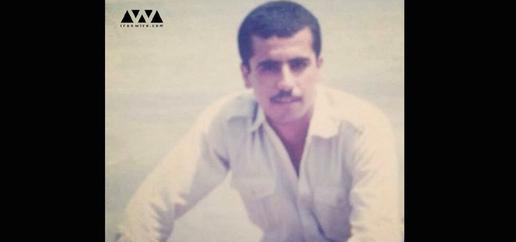







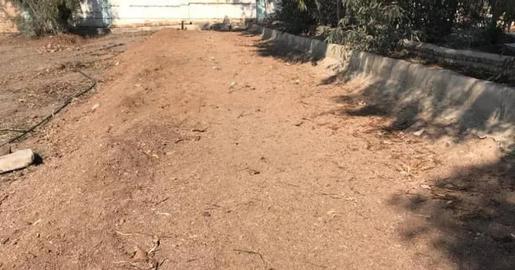
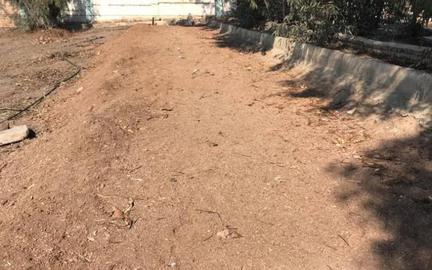

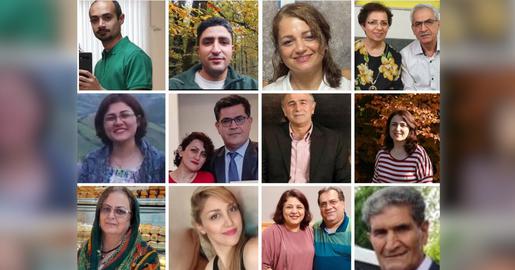
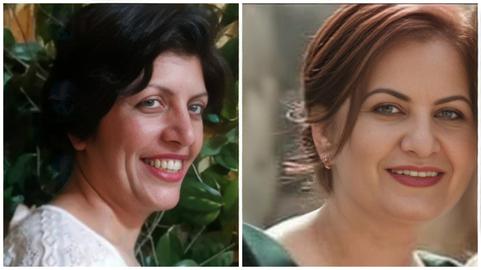

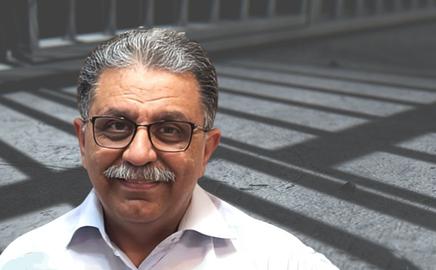
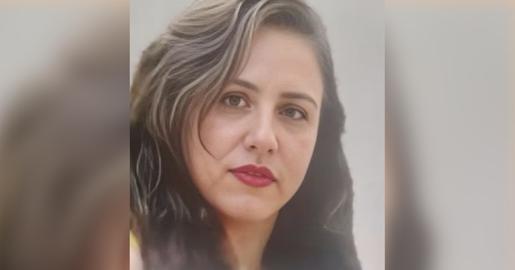
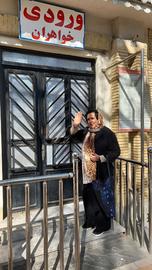
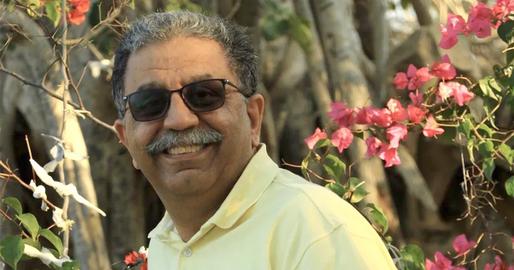



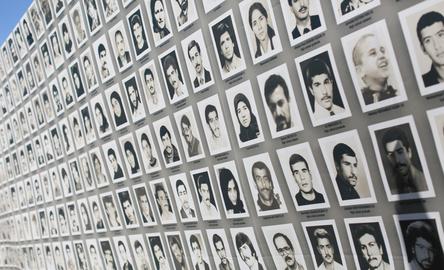
comments